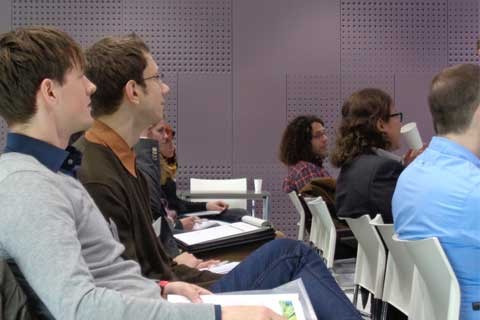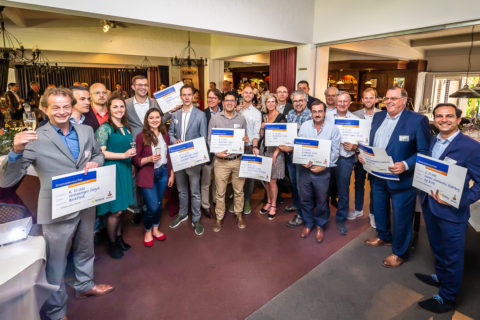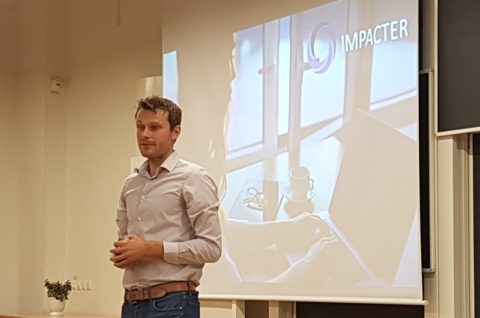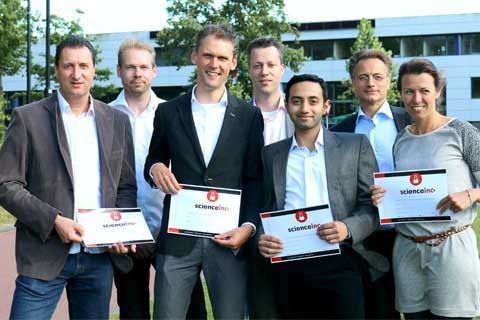In our previous blog, we discussed 5 reasons why the argument of being ‘too fundamental to utilize’ is dangerous to use. In this blog we will treat the (probably) most unsatisfactory reason to comply with the ‘hype’ of knowledge utilization: it is simply the current system.
This could be a very short blog because the basic message is this: valorization is the way we do things now, deal with it. Whilst this may be true, it is not the most sympathetic statement and to understand why you can’t really ignore the trend, let us consider a parallel. On June 5th 2012, the Dutch government enacted a law regarding internet Cookies, a very stringent interpretation of the European guidelines. You will remember the resulting cookie-walls on many websites, requesting you to accept cookies before allowing any activity on the website: it was a nuisance to developers and visitors alike. The law was later revised to allow ‘implicit’ permission in some cases. However: even the friendly version of the law pointed towards an underlying trend: growing concern about internet privacy. Whilst many websites got away with ignoring the first cookie-laws, they have been wise to recognize the trend.
Now, let’s look at this ‘trend’ in the context of valorization:
The advancement of ‘valorization’ in the Netherlands formally starts in 2005 when the Dutch minister of Education, Culture and Science writes an explanation letter (in Dutch) towards all University Boards about the third core task of each university: Knowledge valorization. Some would argue that the activity already sprouted in the sixties with the ‘science stores’ (wetenschapswinkel) through which universities want to democratize knowledge. Others could even argue it has always existed. From the earliest beginning of universities, illustrated by the focus of the first universities in Europe: law, medicine and theology. Insights from these disciplines were directly used to benefit society. So, if valorization always existed, why is it still a controversial topic in universities right now?
Since 2005, valorization is named as one of the core tasks of a university. Cornelis van Bochove, one of the ‘importers’ of this term from Belgium, claimed that they did so with the goal of keeping things exactly the way they were. Well, that went somewhat different. Since the introduction of the term, more and more emphasis has been put on utilization. The social sciences and humanities had initial difficulties to incorporate the narrow, economic, definition of valorization within their research, which led to the Dutch report ‘Alfa- en gammastralen’. From 2012 onwards, NWO (the Dutch funding agency for science), incorporated a paragraph for knowledge utilization in almost all funding instruments. There are still some possibilities for funding without the perspective of utilization in the Netherlands and Europe, emphasis is clearly on science that contributes to solving societal issues (such as ‘the grand challenges’ in Horizon2020 or the Wetenschapsagenda).
What is the point of this, short and incomplete story about the history of science? Basically that the trend towards knowledge utilization, proved to be inescapable in the last decade. And we aren’t even at the end of this development. Science in Transition has the goal to reform science and is getting more and more attention. In March, they host their third symposium with KNAW to talk about the self-referential system in science and the lack of societal relevance. NWO will restructure their organization so the societal relevance will get more attention as is described in the Science Vision for 2025 by this government. Everything points towards further development of valorization, to improve the policies currently in play. But don’t worry, we still need fundamental research, and fundamental research is not inapplicable by definition. If you need help to find the value in your research try to contact the Technology Transfer Office within your university or contact us via info@idfuse.nl! Don’t fight this trend, embrace it, and … deal with it!





